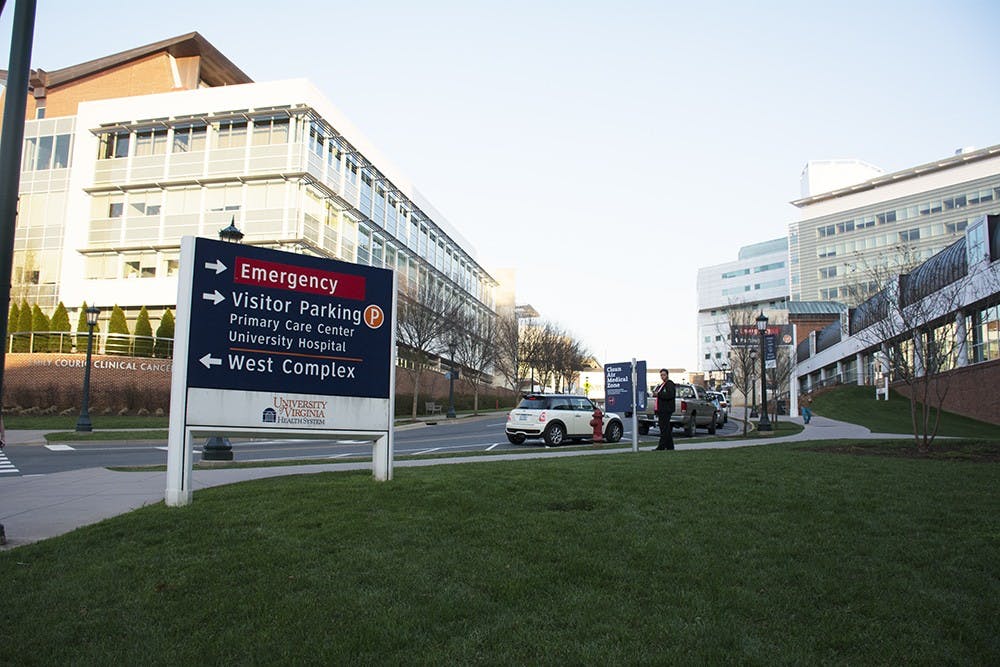For the first time in 15 years, the University’s Medical Center is undergoing renovation.
The renovation, which began the second week of June, aims to improve the experience of hospital patients by expanding facilities to give individual patients more room.
University Medical Center CEO Pamela Sutton-Wallace said making sure patients are comfortable was a priority for herself and the Board of Visitors, which approved the project in March 2015.
“Fundamentally, and most importantly, this is about improving our patients’ experience,” Sutton-Wallace said. “This allows U.Va. Medical Center to care for patients who want to be cared for here who aren’t able to access care quickly easily and efficiently.”
The expansion has two primary components, the first involving the expansion of the emergency department, providing distinct areas for the medical center’s pediatrics, observational areas and psychiatric mental-health needs.
Sutton-Wallace said these facilities are especially important given the needs of the community over the last few years.
The second component involves the expansion and renovation of the interventional platform, where medical procedures are performed.
“Whether you’re getting your procedures through our interventional radiology, whether you’re getting one of our cardiac procedures or electric physiology where you get a heart ablation, it expands that platform to provide more recovery space,” Sutton-Wallace said.
Additionally, six floors will be constructed above the interventional platform.
Eric Swensen, the medical center’s public information officer, said three of those floors will not serve an immediate purpose.
“I think it’s fair to say that they’re reserved for whatever our future needs may be,” Swensen said. “We’ll just build the floors and have them available for whatever we may need in the future.”
The medical center is located on one of the last major land parcels close to the University, and expansion will become increasingly expensive and disruptive.
“We will also have a level under the ED for expanding our infrastructure, like our equipment storage and sterile processing areas,” Sutton-Wallace said.
Approximately 50 percent of the medical center’s inpatient beds are semi-private, meaning patients share these rooms. The improvement of hospital infrastructure will allow for the privatization of rooms and increased space per patient, a project Sutton-Wallace calls a “patient satisfier.”
“Any given day, we have 30 beds closed because we don’t want patients to have to share a room,” Sutton-Wallace said. “It could be closed because a patient needs to be in isolation, because the patient has too much equipment in their room, or because the genders don’t match.”
An average of 60 patients are unable to be transferred to the University hospital because of bed unavailability, according to medical center data.
This expansion will also alleviate the pressure on current operating rooms by adding four new ones. Sutton-Wallace said the medical center is in “desperate need” for new rooms.
“We are projecting that the emergency department and procedural space are estimated for completion in early summer of 2019, and then the bed tower is projected to be completed by the end of 2019,” Swensen said.
The project is also projected to introduce $60 million into the local economy, as well as create new construct jobs. The Medical Center will begin recruiting for new nursing position a year before the completion of the expansion.
The project will cost approximately $394 million in total, and is funded by bonds and medical center capital.







